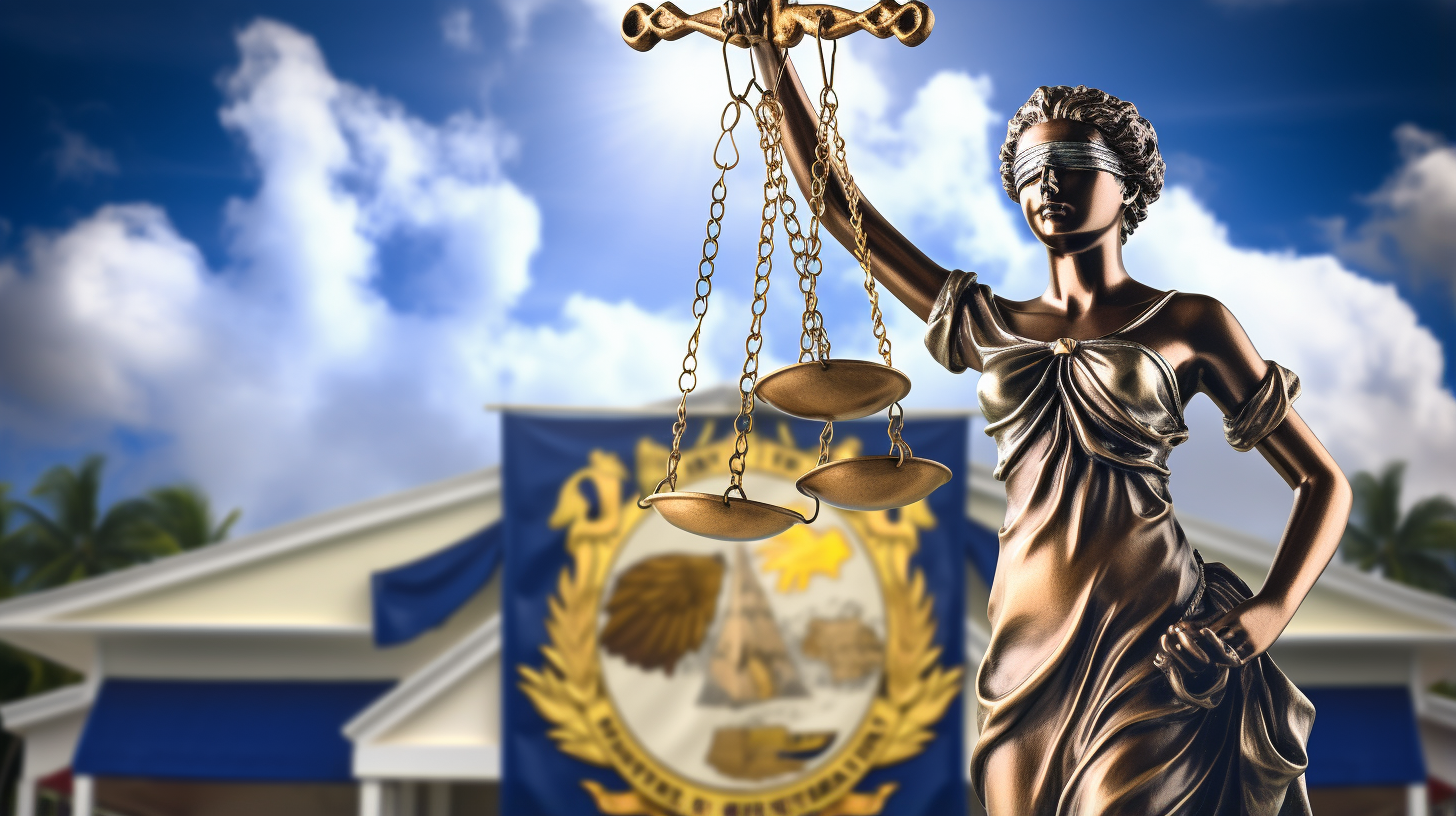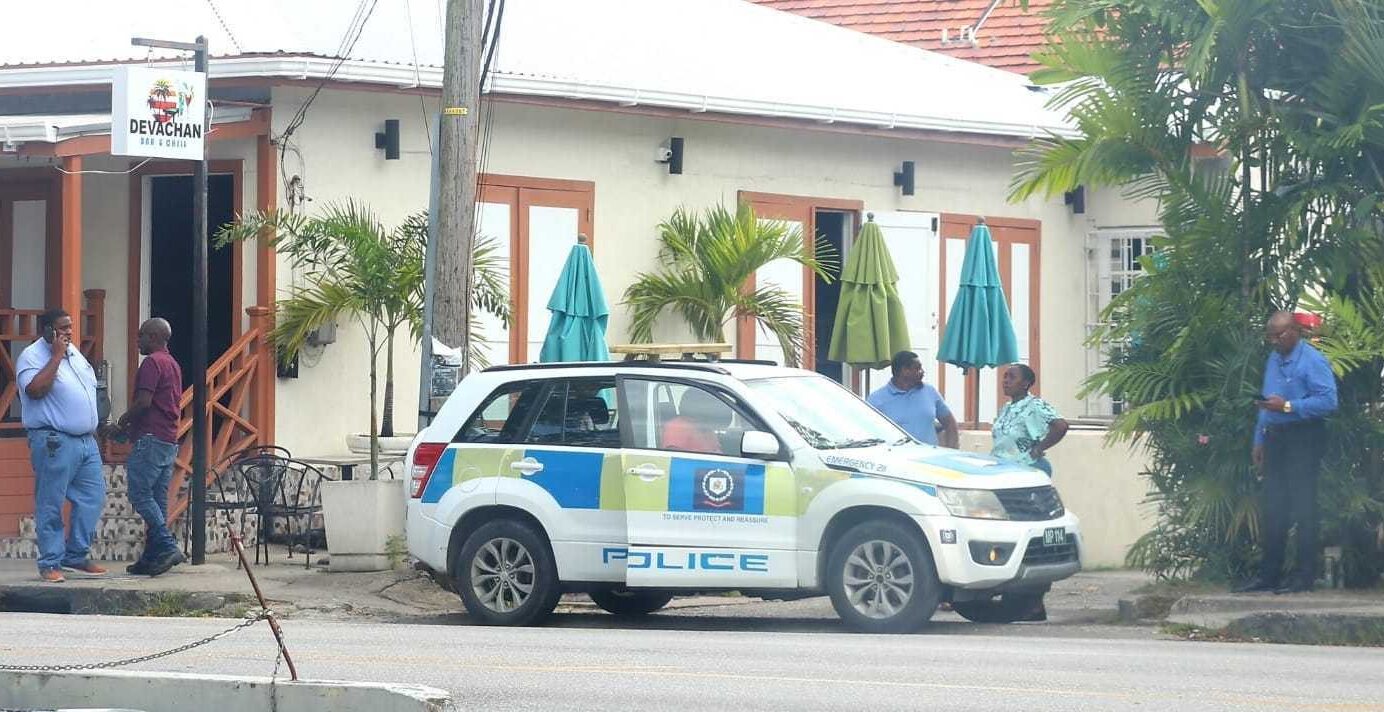Rape Accused Oliver Chesterfield Fields Testifies to Consensual Encounter with Alleged Victim

January 10, 2024
"Rape accused Oliver Chesterfield Fields admits to consensual intimacy with alleged victim but disputes rape charges. Details emerge during trial at No. 4A Supreme Court."
Rape accused Oliver Chesterfield Fields on Tuesday admitted to being intimate with a woman on September 28, 2020, but insisted it was consensual and instigated by his alleged victim.
Giving evidence from the dock as his trial resumed in the No. 4A Supreme Court, the 71-year-old man also said the complainant continued to call him to transport her to run errands up to four days before he was arrested and charged with raping her.
Addressing the nine-member jury, the Edey Village, Christ Church resident said that he had started tiling the bathroom in the complainant’s home in August 2020, a job which he decided to do for free as both she and her husband were pensioners.
After working, Fields said, the three of them would often share a meal. As the husband was a diabetic, he would often head to bed afterwards to watch television, which they could view from the dining room.
One evening as the husband lay in bed, Fields told the court, the complainant began rubbing his knee with her toes before softly telling him that she was thinking about him during the night. The two then began chatting via cell phone about the work being done in the bathroom and also about their personal lives.
“During our conversation, she said that he is a very bad diabetic and can’t get an erection and he confuses her even though he knows he cannot do anything, so she sleeps in one bedroom and he in the next,” Fields testified.
He told the jury that prior to the alleged rape, the complainant told him to get to her home around 9 a.m. on September 28, rather than his usual 10:30 a.m. arrival time, as she had persuaded her husband to leave the house to run an errand.
Upon arrival, Fields said he went into the bathroom to continue the tiling. He said she entered the room and they hugged before she told him: “We got to move quick because [her husband] moved earlier than arranged and you come late.”
After their attempt to have sex on the toilet failed, Fields recalled that she lay on the bathroom floor but after two minutes, he became uncomfortable as his knees were hurting.
“I got up and told her, ‘Look I can’t handle this’,” he recounted, adding that he spent the rest of that day putting tiles around the kitchen sink and around the stove. “I worked that whole day when she said I raped her, and when she said I got up and left and that type of stuff, all of those things are lies.”
He stated in his unsworn testimony that the complainant and her husband contacted him three times after that to have him drive her to visit family members.
“Four days before the police arrested me, she called me and asked me to bring some cream for her as she had a burning. I told her that I would have to go to the pharmacy and she said to meet her by Granny’s in Oistins. I got there and sat down and waited and when she came I gave it to her. She told me to drop her by Purity Bakeries and I said ok…. All of this time, Ma’am, I didn’t know that I was accused of rape and I dropping this woman here and there,” he said tearfully.
Fields said that before the arrest, the complainant’s husband had called and asked him for $1 000 for his wife, but he said that was not possible as he was already doing the tiling job and several others for the church for free.
The accused said that while in custody, he handed over his cell phone to the police as evidence, “with all of the text conversations that we had to prove that this woman was inviting me up at her house to have sex with her”.
He said when the phone was returned three years later, “everything” had been wiped from it.
Detective Constable Kemar Burke of the Digital Evidence and Cyber Crime Unit of the Barbados Police Service later gave evidence, outlining that the examination of the phone, which occurred in March 2023, had found nothing of evidential value to either prove or disprove the case.
Defence attorney Neville Reid asked him if, after some time, WhatsApp messages or text messages could be removed from a cell phone by providers. Burke testified that if either party had turned on disappearing messages in WhatsApp, these would disappear on that individual’s phone.
The matter is expected to continue on January 15 when closing submissions are to be heard.


